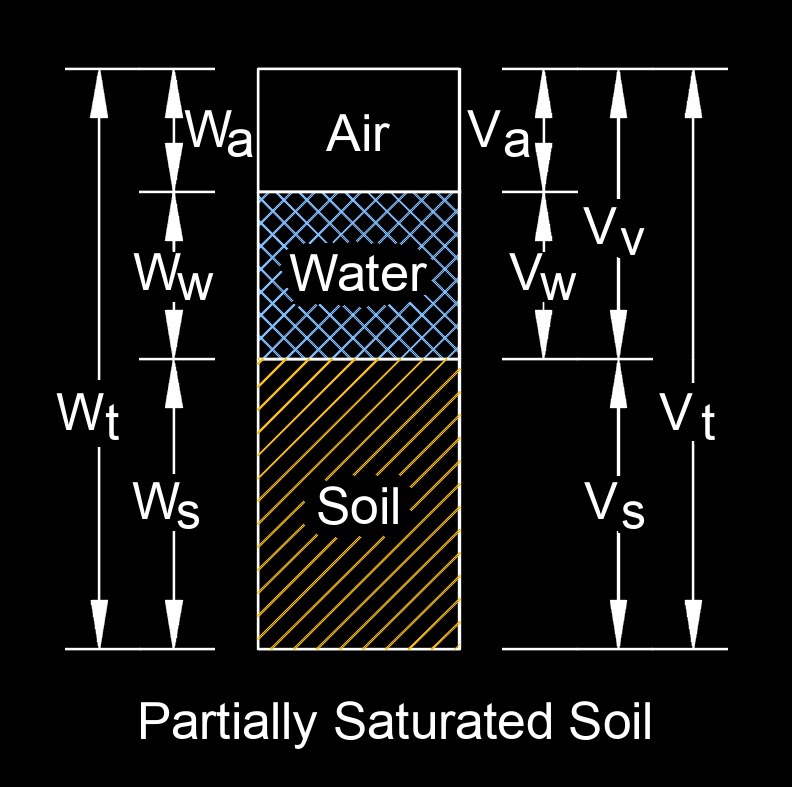Volumetric Water Content
Volumetric Water Content Formula |
||
|
\( \theta \;=\; \dfrac{ V_w }{ V_s + V_w + V_a }\) (Volumetric Water Content) \( V_w \;=\; \theta \cdot \left( V_s + V_w + V_a \right) \) \( V_s \;=\; \dfrac{ V_w }{ \theta } - V_w - V_a \) \( V_a \;=\; \dfrac{ V_w }{ \theta } - V_s - V_w \) |
||
| Symbol | English | Metric |
| \( \theta \) (Greek symbol theta) = Volumetric Water Content | \(ft^3\) | \(m^3\) |
| \( V_a \) = Volume of Air | \(ft^3\) | \(m^3\) |
| \( V_s \) = Volume of Solid Soil | \(ft^3\) | \(m^3\) |
| \( V_w \) = Volume of Water | \(ft^3\) | \(m^3\) |
 Volumetric water content, abbreviated as \(\theta\), is a measure of the amount of water present in a given volume of soil. It represents the ratio of the volume of water to the total volume of the soil. It is a parameter used in soil science, hydrology, and agriculture to assess soil moisture conditions and understand water availability to plants.
Volumetric water content, abbreviated as \(\theta\), is a measure of the amount of water present in a given volume of soil. It represents the ratio of the volume of water to the total volume of the soil. It is a parameter used in soil science, hydrology, and agriculture to assess soil moisture conditions and understand water availability to plants.
Volumetric water content can be measured using various techniques, including gravimetric methods, where the weight of the water in a soil sample is determined, and then the volume is calculated based on the density of water. Other methods involve the use of sensors, such as time domain reflectometry (TDR), capacitance sensors, or neutron probes, which measure the electrical or neutron scattering properties of the soil to estimate the water content.
Volumetric water content is crucial for understanding soil water dynamics, plant water uptake, irrigation management, and hydrological modeling. It provides insights into soil moisture conditions, helps determine irrigation requirements, and influences various soil properties, including soil compaction, permeability, and nutrient availability.

